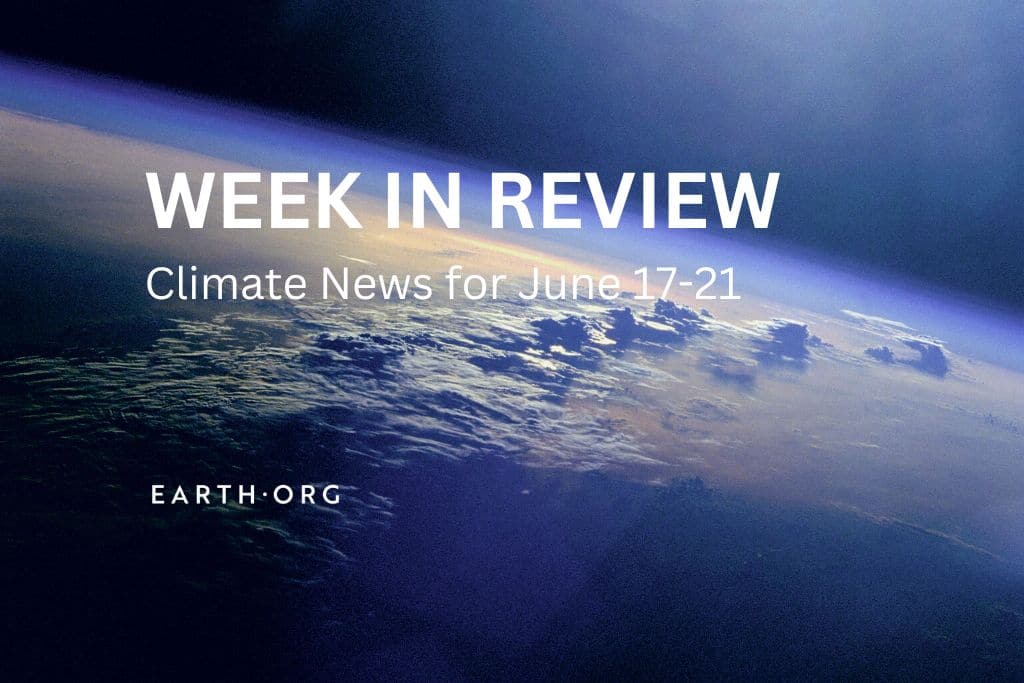This weekly round-up brings you key climate news from the past seven days, including a landmark treaty to protect high seas and the UN chief desperate call to phase out fossil fuels.
—
1. UN Gives World Oceans ‘A Fighting Chance’ With Adoption of Landmark High Seas Treaty
After nearly two decades of fierce negotiations over a common conservation strategy in the high seas beyond national boundaries, 193 UN member nations adopted the world’s first treaty to protect the high seas and preserve marine biodiversity on Monday.
“… [T]oday, you have pumped new life and hope to give the ocean a fighting chance,” UN chief António Guterres told member states, describing the adoption – which follows an agreement reached in March by more than 100 countries on the treaty’s text – as a “historic achievement”.
The UN has spent nearly 20 years trying to reach an agreement on the high seas, vast stretches of water beyond national boundaries that cover two-thirds of all ocean and almost half of the planet, are home to up to 10 million species, and are an invaluable source of food for billions of people.
Despite their importance, only 1% of high seas is currently protected, and climate change-related phenomena such as ocean acidification, as well as human activities like overfishing, pose a growing threat to the world’s oceans. Plastic pollution also represents a major issue. In 2021, plastic made up 85% of all marine litter, and if this trend continues, the UN estimated that by 2050, there could be more plastic in the sea than fish.
Read more here.
2. Europe Is the World’s Fastest-Warming Continent, WMO Finds
Europe has warmed at a rate that is twice as much as any other continent in the world since the 1980s, with significant effects on the ecosystems and socio-economic structure of the area, the World Meteorological Organisation (WMO) has found.
According to its latest report, Europe’s temperatures in 2022 were about 2.3C higher than the pre-industrial average. Belgium, France, Germany, Ireland, Italy, Luxembourg, Portugal, Spain, Switzerland, and the United Kingdom recorded one of the warmest summers in 2022, with an anomaly of almost 0.79C above the average for the period between 1991 and 2020, thus making last year’s annual average temperature in Europe among the second and fourth warmest on record.
Read more here.
3. UN Chief Blasts Fossil Fuel Industry, Calls for Exit Strategy
United Nations Secretary-General António Guterres launched a tirade against the fossil fuel industry over its role in climate change last week, describing Big Oil companies’ actions as “immoral” and calling on countries to develop a credible phase-out strategy.
“The problem is not simply fossil fuel emissions. It’s fossil fuels – period,” Guterres said in his speech, adding that they are “incompatible with human survival.”
The UN head also attacked carbon capture technology, defined by the Intergovernmental Panel on Climate Change (IPCC) as “anthropogenic activities that remove carbon dioxide from the atmosphere and store it durably in geological, terrestrial, or ocean reservoirs, or in products.” Guterres said that any attempt to justify the fossil fuel expansion with carbon capture and storage technologies only makes companies “more efficient planet wreckers.”
Read more here.

















